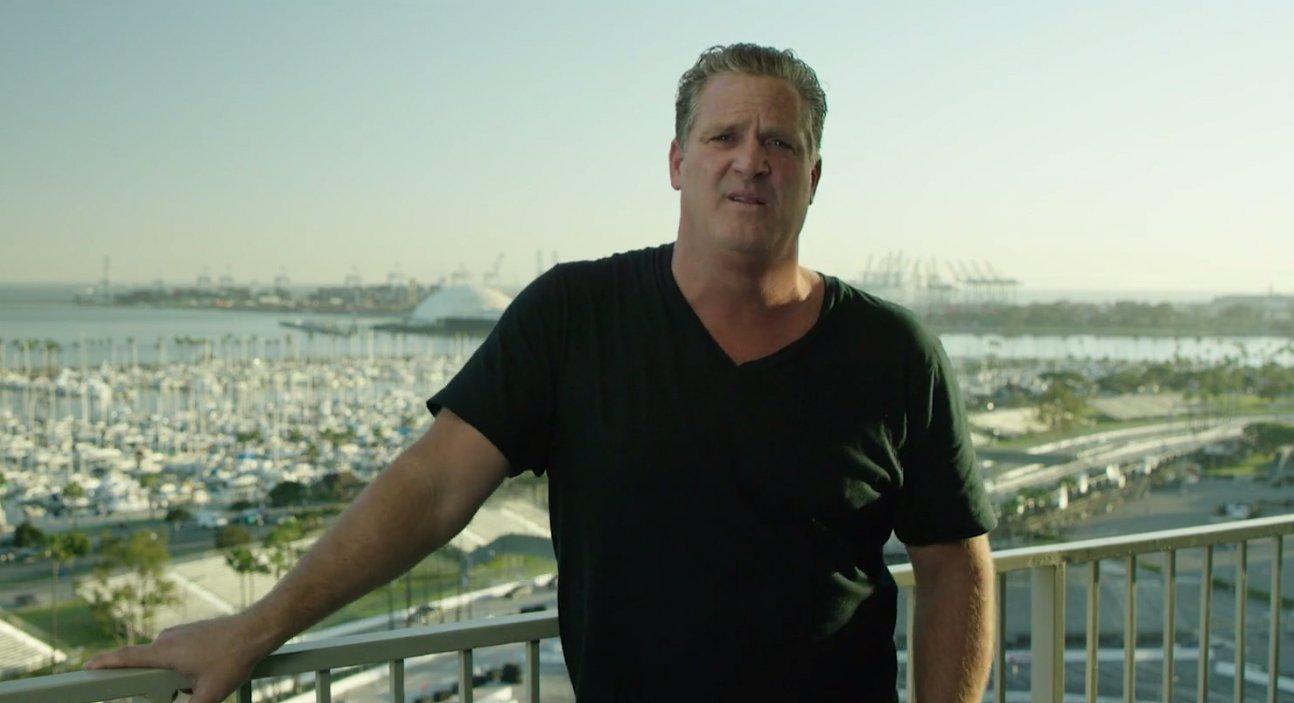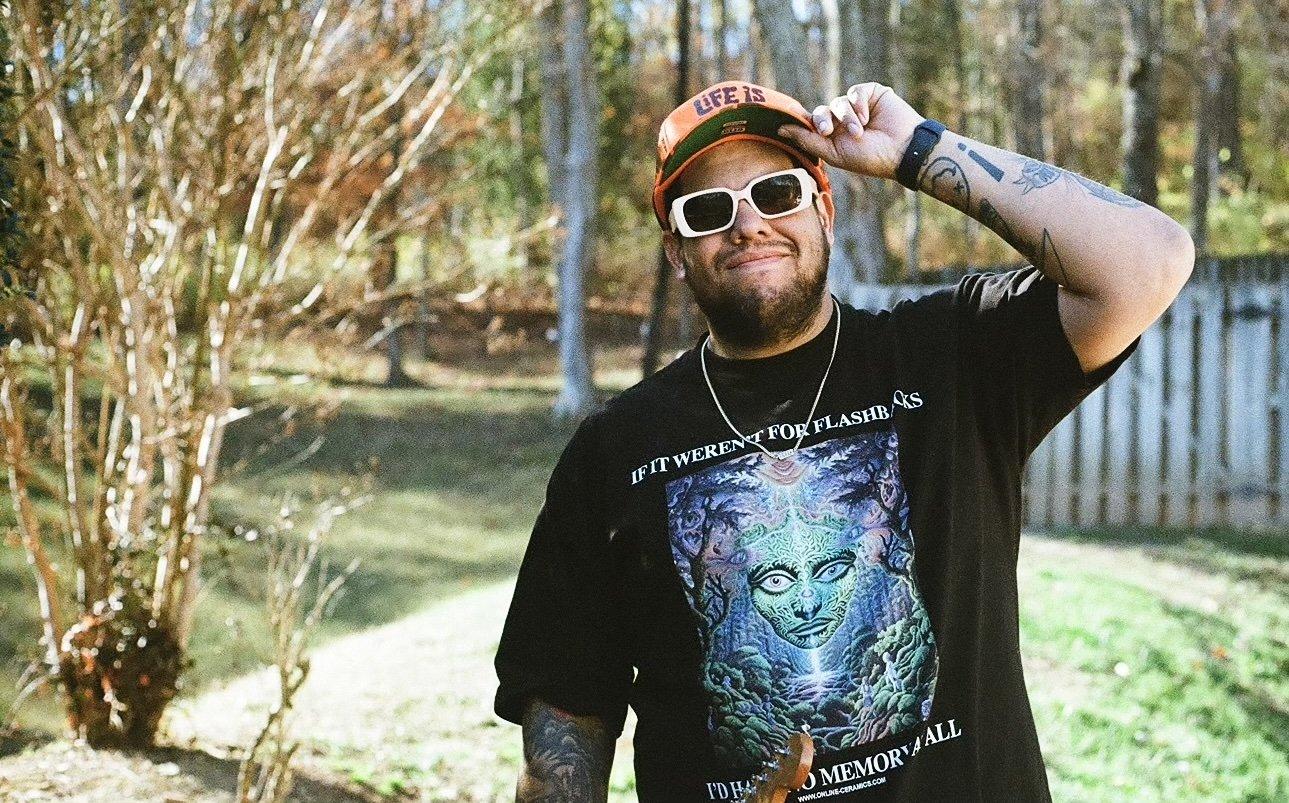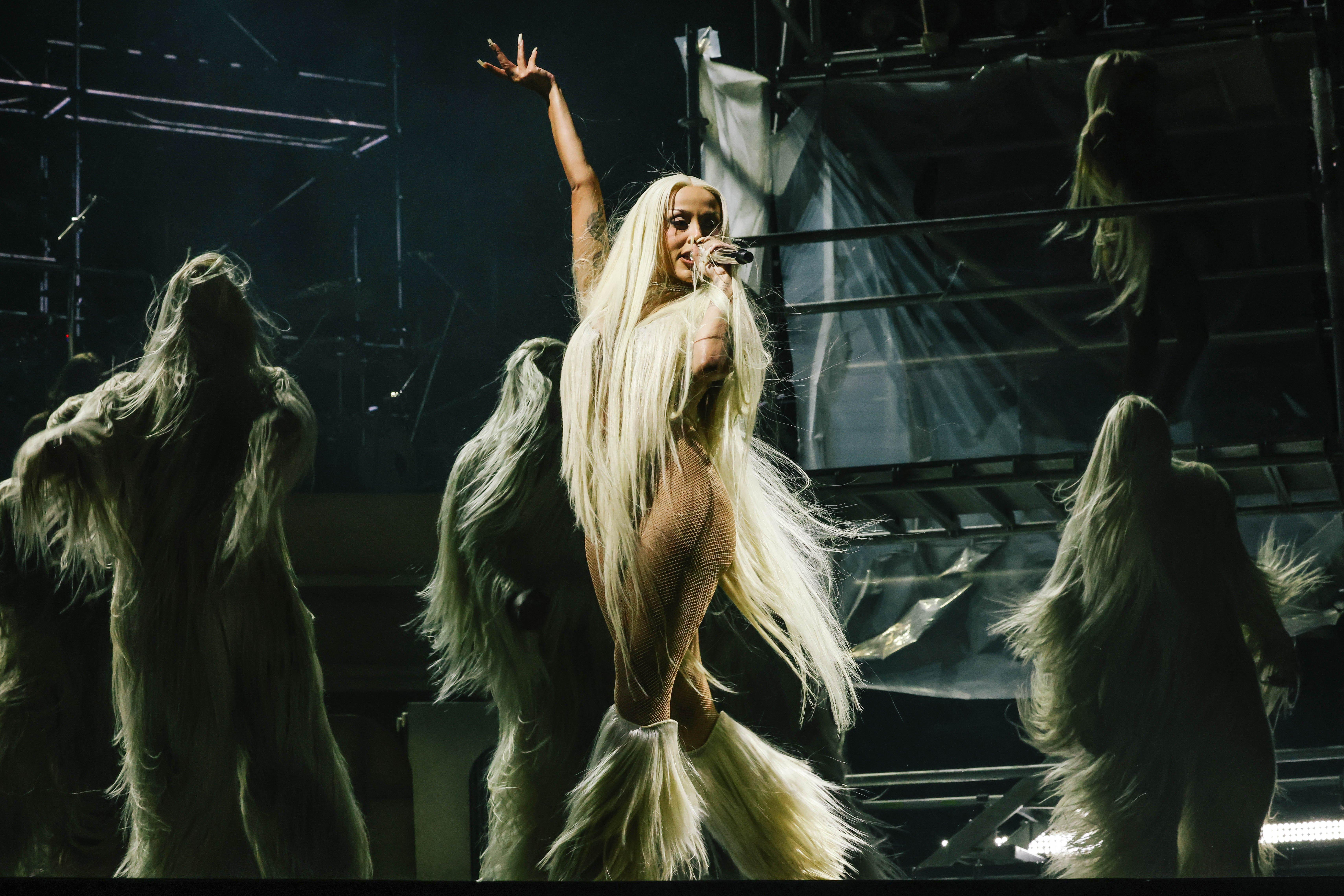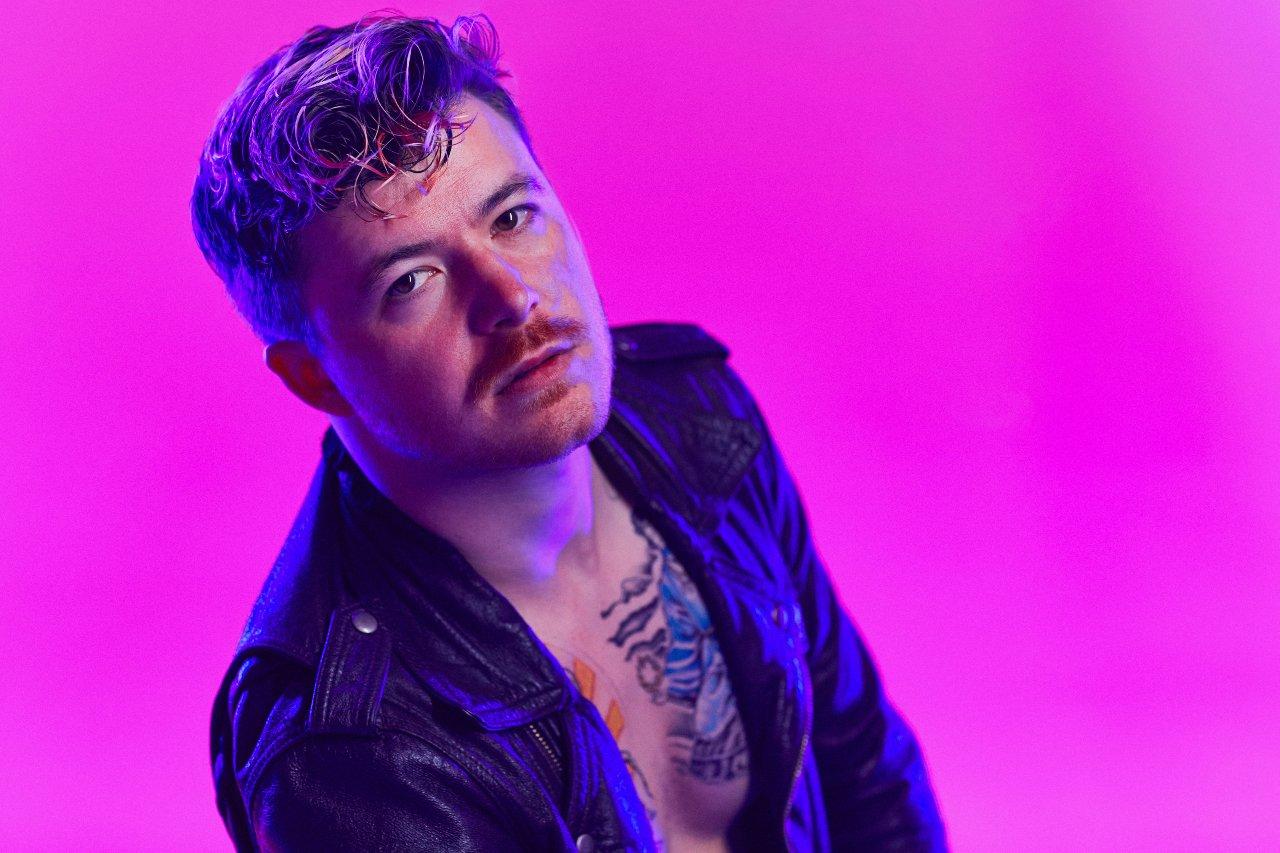When Jakobs Castle leaned into Sublime's "Garden Grove" at City Winery NYC, it was almost an involuntary response: you had to rise to your feet and chant every line. It certainly helps if you're a West Coast boy, like this writer, but on a winter night in Manhattan, everyone thawed.
Arguably, nobody except the Beach Boys so exemplified Southern California, or brought its sound to so many. While Sublime's songs remain eternal, the trio's run was cut short when frontman Bradley Nowell — father of Jakob Nowell — died of an accidental overdose on tour in 1996. Jakob was just a baby and has no memories of his father, though Jakob looks, and especially, sounds like him — and addiction snared him too, badly.
The young Nowell got clean and sober seven years ago; nicotine and caffeine are his only remaining vices. And at 28 — the age his dad passed — it was revealed that he was the new singer of the '90s reggae-ska-punk heroes. As this is Jakob's birthright, this is the true Sublime.
Unlike Sublime with Rome — an offshoot of the band with singer/guitarist Rome Ramirez — the reconstituted Sublime will not be releasing new music. "I think it's where Sublime with Rome lost me," the scruffy, super-smart junior Nowell tells GRAMMY.com. "I think it's jive when a lot of '90s bands come back and try to make a brand-new record, 'cause you're never going to recapture that old era."
Rather, Sublime's plan for now is to carry the torch live, and let audiences behold a beloved band that ended right as it was taking off. Bradley died two months before their enormously successful self-titled album was released in 1996.
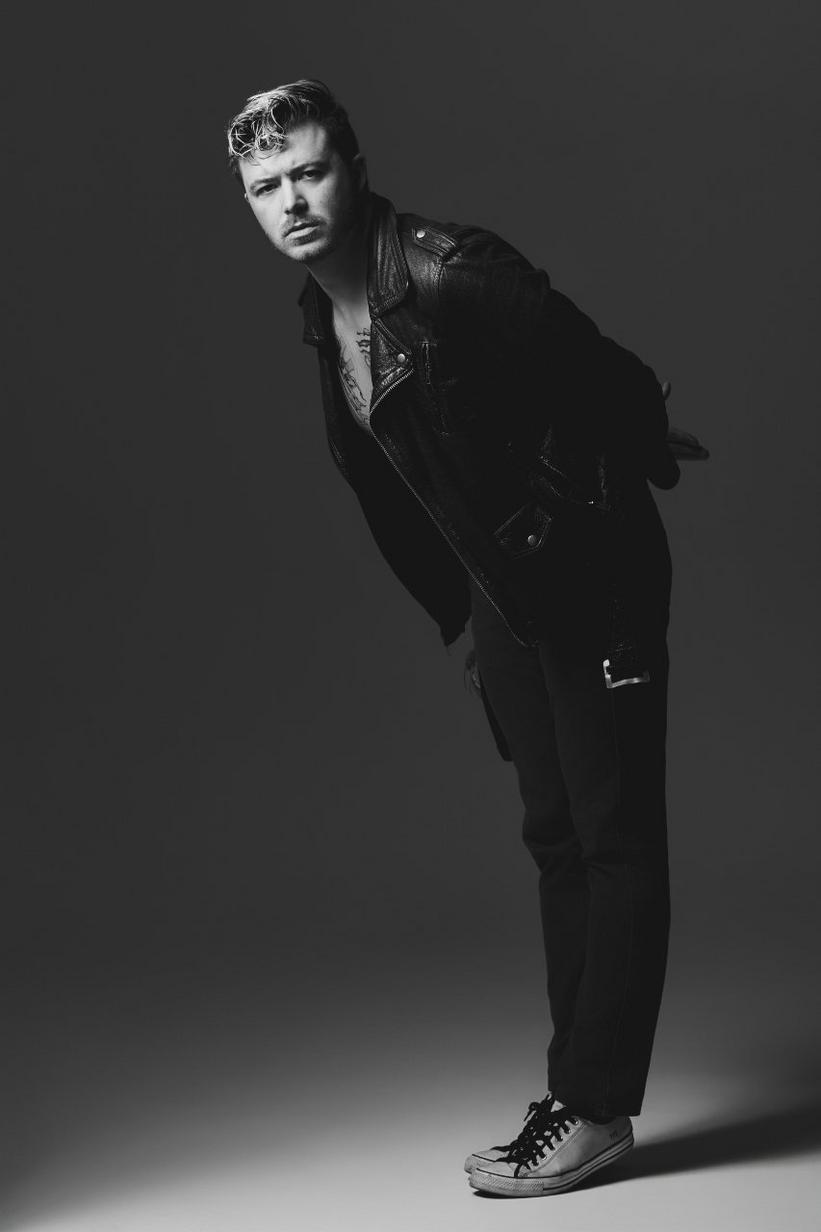
*Jakob Nowell. Photo: Rowan Daly*
On April 13 and 20, 2024, Sublime will make their Coachella debut — a highly anticipated, though somewhat unexpected, reunion of sorts. And on April 12, Jakobs Castle — his electronics-inflected pop/rock project — will release their debut album, ENTER: THE CASTLE, via Epitaph Records.
Ahead of his arrival on the Indio, California stage, Jakob Nowell shares what audiences can expect during his Coachella sets and shares his intention to revisit unreleased material from Sublime's original run.
This interview has been edited for clarity.
Let's start with Jakobs Castle. What's your live rig all about? It caught my attention.
I'm really proud of my Jakobs Castle setup, 'cause I've been in music for over a decade now with varying degrees of involvement in the gear side of things. But two years ago, when I decided to start my solo project, I was like, OK, I've got to buckle down and go down the rabbit hole and become my own sound guy.
And that's exactly what I did. Jakobs Castle is an electronic alternative rock band, like the Gorillaz or whatever, we use a lot of electronic sounds. And I can't hire a whole bunch of musicians, so that means tracks. But that's not to say we don't still jam or improvise. I still think we like to have the lifeblood and flow of a real band.
I have this big giant center console, this big rack mount that sits center stage. And standing on top of it's my computer. It's supposed to be like my DJ booth. And that plugs into a Loop Community track rig, which has eight XLR outs that I can send out to the house, so they have all of our tracks. I like to send out each different stem differently so it gets mixed better and you can hear everything a lot clearer.
But because I have this big thing sitting there, I'm like, Well, I got to do something with this. So I put a TV in it that's playing static, and I make it part of our bit. I call him Castlebot 9000. I'll be like, "Everybody give it up for our in-house robotic DJ and bass player, Castlebot 9000. " Castlebot 9000 has 100% become the most important band member in my band, and it's all part of the act.
Wow. What happens from there?
From Castlebot, I send out all our tracks, and then I send the click to my drummer. Drummer is playing out of a four piece kit. It's all mic'd up. He doesn't use a drum pad or anything yet. We might do some sampling. And then I trigger all the tracks with Ableton. I'm playing out of a guitar that's being taken out of a DI. I don't like traveling with big amplifiers. I like to reduce our travel load as much as possible, because we travel in a Ford Transit van.
How did you learn all this technical know-how? Did you self-educate?
Yeah, it's definitely all just the internet. The internet's your friend. It's the great equalizer. When writing was invented, there's this story where f—ing Thoth is talking to the emperor of Egypt, of course. I can't remember his name. Man, I sucked in English class. And he is like, "This invention of writing is going to make our people stupid. You're supposed to memorize everything. " And the Greeks had their own f—ing opinions about that shit, too.
And the same thing happens with the internet. Is it going to make people more stupid? Because they're supposed to write everything down to memorize it. But I think you take every single technological leap as it comes and it's like a cheat code. I always say that I'm not actually good at anything. I'm just really good at cheating. And the best form of cheating is practice. Practice and study is just cheating. No one's good at anything right off the bat.
A friend interviewed you and reported back that you're a literature buff. Are you a history buff too?
I wasn't in school, but I had to grow up a little bit to see its merits. But now I totally am. I f—ing love history and stuff. I just got done reading The History of the Peloponnesian War, and I figured I ought to start at the beginning if I'm going to get into history. But yeah, man. There's so many amazing things we can take from the past and stuff like that.
In my own personal journey, joining my father's band and trying to eke it out on my own as a musician, I see a lot of different parallels, especially coming into your own and having to hire people and getting involved in the politics of music..
Everyone's trying to get a leg up and stuff like that. So I think even though music is not like statecraft, there's a lot that can be taken from [history] to learn how to advance your position in your career.
You brought up your old man, naturally so. Was he pretty involved in the studio, as far as you know? Was he a gear guy?
I think about as much as I am. He definitely knew how to get the tones that he liked, but it's biting me in the ass because in that self-titled record that everyone loves so much, he passed away before they got to tour those songs. So we don't really know how he would play them live.
People don't realize all those amazing life-changing solos, that was the one take they got of him doing that perfectly. According to Paul Leary from the Butthole Surfers, who engineered it.
When I'm up there on stage, I always tell fans I'm not my dad. They're like, "He doesn't play the guitar the same or sing the same or do this. " It's almost like I'm not him, dude; I'm a different guy. My larynx just happens to be biologically similar, so sometimes it sounds similar. But I will play them genuinely and I'll have fun doing it, and that's all I can promise.
[That's] the best job I can do: Trying to portray these Sublime songs is just having fun with it, naturally. And I think that's what you can hear in the studio recordings: a bunch of guys just having a really good time in the booth together.
I've been revisiting the Sublime catalog, and they sounded so good. Did you play with Bud Gaugh and Eric Wilson a lot before this got rolling?
No, I think we only jammed just once or twice. They've always been around in the tertiary wing of my life, but I've always considered them family. But as far as getting to jam with them now in these rehearsals, it's been fun, man. They're world-class musicians, like you said.
Sometimes I'm sitting there listening to f—ing Bud hit the drums and I'm like, Goddamn, this guy is so f—ing good. He's so articulate and interesting. He's got such a f—ing active right hand and the stuff that he does on the hi-hat, it is amazing. And Eric Wilson is just a machine, dude. The lines that he plays with such ease and he just makes it look easy, it's awesome.
Eric seems like a total nut in his middle age.
In the best way. They're a bunch of mad geniuses, that's for sure.
When you started to play with them more and more, what did you learn about how Eric thinks about the bass, or how Bud thinks about the drums?
it almost just seems like second nature to them. It's like seeing a carpenter at work, making an expert chair out of scratch. It's nice going from Jakob's Castle, so electronic, and then Sublime is just so raw and real.
The way your dad played guitar was so hip — very relaxed, yet precise, with so much breathing room. What was approaching the instrument like when you stepped into his shoes?
Oh, man. It definitely was its own challenge, trying to get that mix of [elements]. Because I treat this job like a job.I've done singing gigs before where you got to learn a bunch of material, and this has some guitar in it too, so I'm going to f—ing learn the guitar.
I think we all take our practice time very seriously. We try to be as rehearsed as possible, but then once we get up there on stage, it's like — let chaos reign. We're still just a f—ing punk rock band, just having a good time and it's going to be messy and wild and fun. But that's the allure of it.
I can't wait to see this. Are you just playing the hits? Throwing some deep cuts in there?
A good healthy mix of both. I think Bud and Eric are having fun with it 'cause they get to pick a bunch of songs they haven't played in a while, but we definitely want to play all the big singalongs and stuff that people know and love, the "Santeria "s and "What I Got "s of the world and that sort of thing.
I definitely need to brush up on my Spanish for songs like "Caress Me Down" and "Chica Me Tipo," but we're getting there too.
You've mentioned that there are unreleased Sublime tunes ripe for reexamination. Care to elaborate?
A bunch of songs [ended up] on the cutting room floor that never made it on record. Sublime, currently, we don't have any plans to do a brand new album. I think it's where Sublime with Rome lost me. I think it's jive when a lot of '90s bands come back and try to make a brand-new record, 'cause you're never going to recapture that old era.
Sublime has always been this big collaborative thing, and now it's bringing all these people together. We would love to workshop some of that old stuff that was on the cutting room floor, unreleased material, and maybe bring in new modern day artists who have been influenced by Sublime and do a big collaborative process.
I think doing some singles like that could be really cool and give back some of the love to the people who've been inspired by Sublime over the years. So, I find that to be a pretty likely thing.
I'm sure you can't divulge too many details at this point, but is there anything you can say about them? What's the context? What era of Sublime are they from?
It's all from all sorts of different sessions, all the way from their last one, the live album to their very first stuff. I think it all still sounds like Sublime.
Some of them were unreleased 'cause they were just fun jams. And other ones were like, OK, there's a cool hook in there. I can't believe that one never saw the light of day. But they definitely all still have that classic Long Beach, SoCal rock feel.
Sublime obviously partied and messed around onstage, but they seemed to always take care of the music. What's your perspective on all that?
A hundred percent. It was just a bunch of guys having fun and being genuine and sharing their world with the rest of the world, almost without even meaning to.
Going through the catalog and learning all the lyrics and the guitar lines and stuff like that, you start to see this beautiful tapestry of a personality unfold before you. And that's been a very special process. Connecting with the lost loved one and getting to see a lot of who they are, that's all very there.
But as far as that devil-may-care, irreverent attitude, I want to bring that into this era of Sublime. We're trying to work out what the stage design's going to be like at Coachella. Coachella is so big, and the lights and the pyrotechnics and all this.
I think it'd be cool if we said f— it it to all that and just wheeled out a bunch of couches and tables and rugs and stuff and had a bunch of people kicking it with us on stage, f—ing smoking and drinking with their dogs.
I hope that can happen. Do you think that can happen?
I'm putting it out there right now because if it doesn't happen, people will know that this is what I was f—ing fighting for. Just almost make a big joke of the big pomp and circumstance of it all and make it seem like it's just like a f—ing little house party or something like that. I think the other dudes are down too.
The backup plan is just to have an army of strippers. Just an army with battle axes and flamethrowers. And if we're not using that idea, we'll use it for Jakobs Castle. [Grins.] Next question.
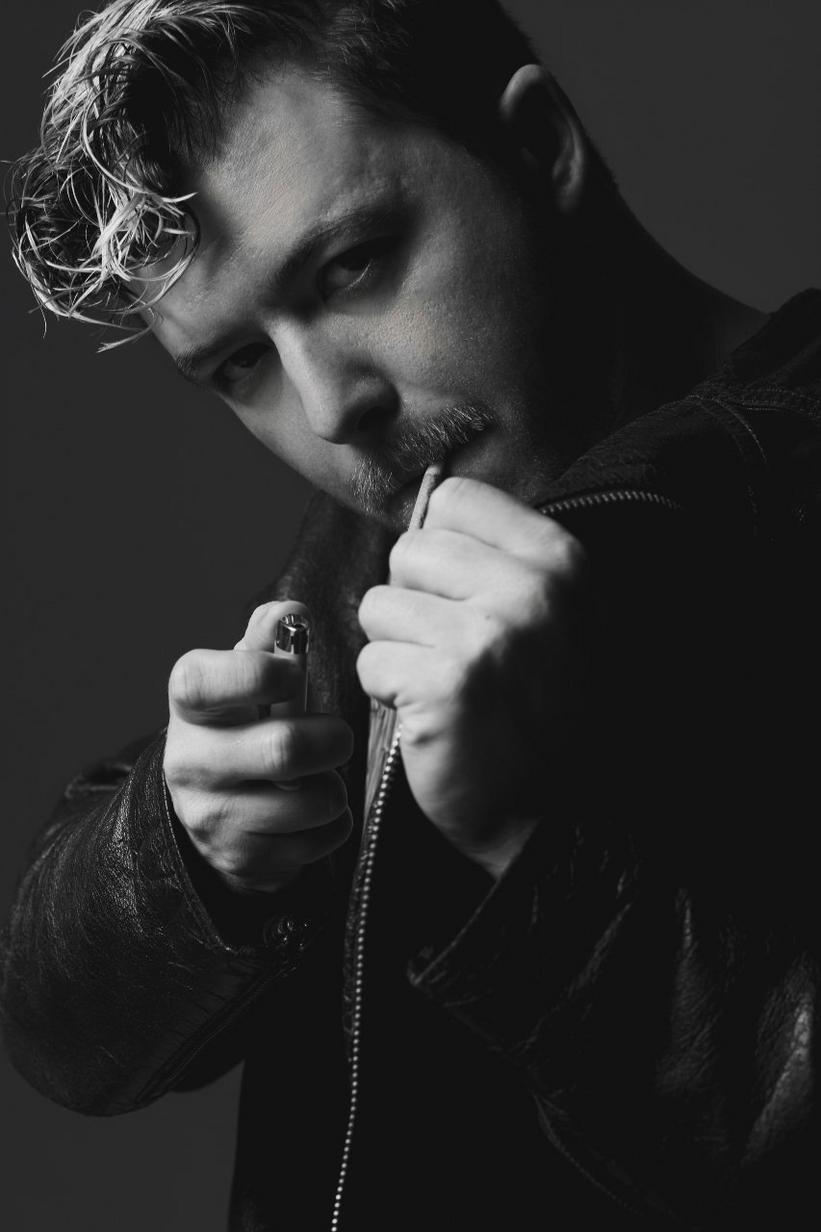
*Jakob Nowell. Photo: Rowan Daly*
Are there any misunderstandings of your dad that you wish you could correct?
No. I think that when you become a public figure, you have to trade a lot. There's pros and cons, just like the pros and cons of using technologies like writing or AI or the internet. You have to take the good with the bad.
So, if people are going to view him one way, then I can't change that. If people are going to view me one way, then I can't change that. Everybody's opinion of me or my father is none of my business, really. That's their right to think that, whether it's something I agree with or not.
I think that he was a man who was widely loved and respected by his friends. He was a human being like anybody else. He was varied. He had good days and bad days.
But I think we have to just take everybody's character based on their actions and what they produced and created in the world. And I know that his music helped a lot of people, and I just feel so grateful to get to be involved with and get to interface with it like that.
He seemed to be a lovely, intelligent fellow.
Yeah, that's what I've heard, man. It's been really nice getting to put together the gestalt to who he was 'cause I never met him personally, but all his different friends and family and the fans, they each have a little piece of who he was, and he seemed to be a very multifaceted and interesting man.
G. Love On G. Love & Special Sauce At 30: Revisiting A Classic Document Of The Hip-Hop Blues

